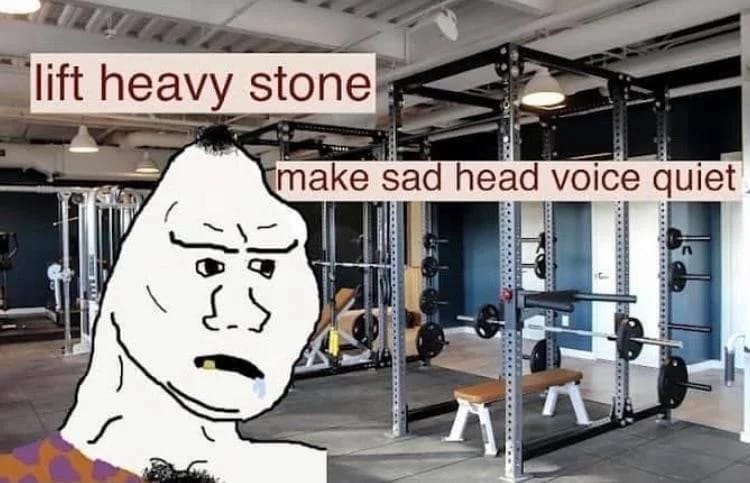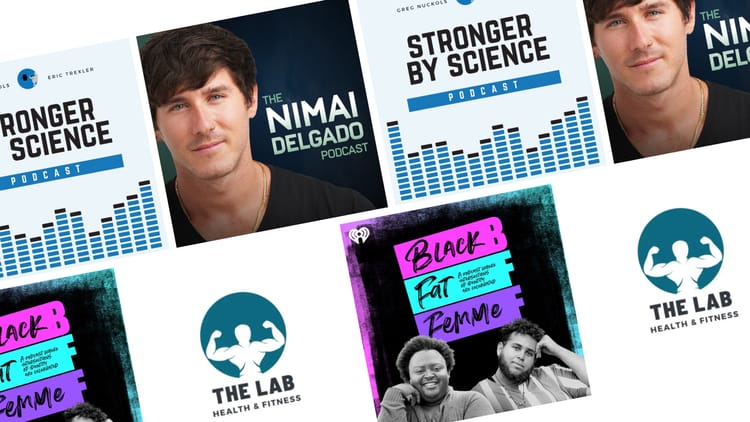What "fitness" means to me
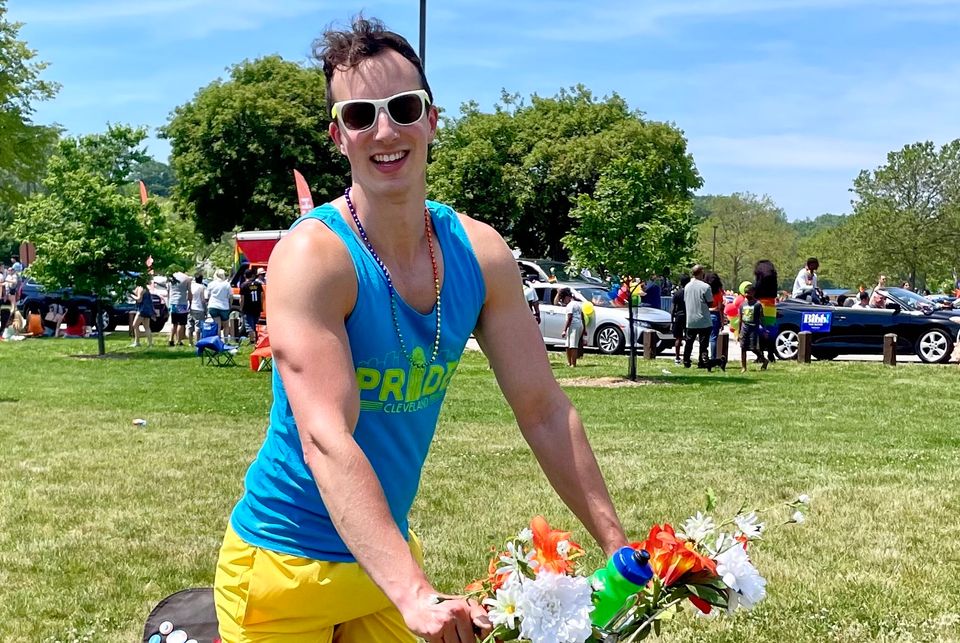
My love of fitness was latent for a long time. Finally embracing that passion is part of my ongoing effort to accept my full self, and I've learned (and unlearned) a lot of core beliefs and values along the way.
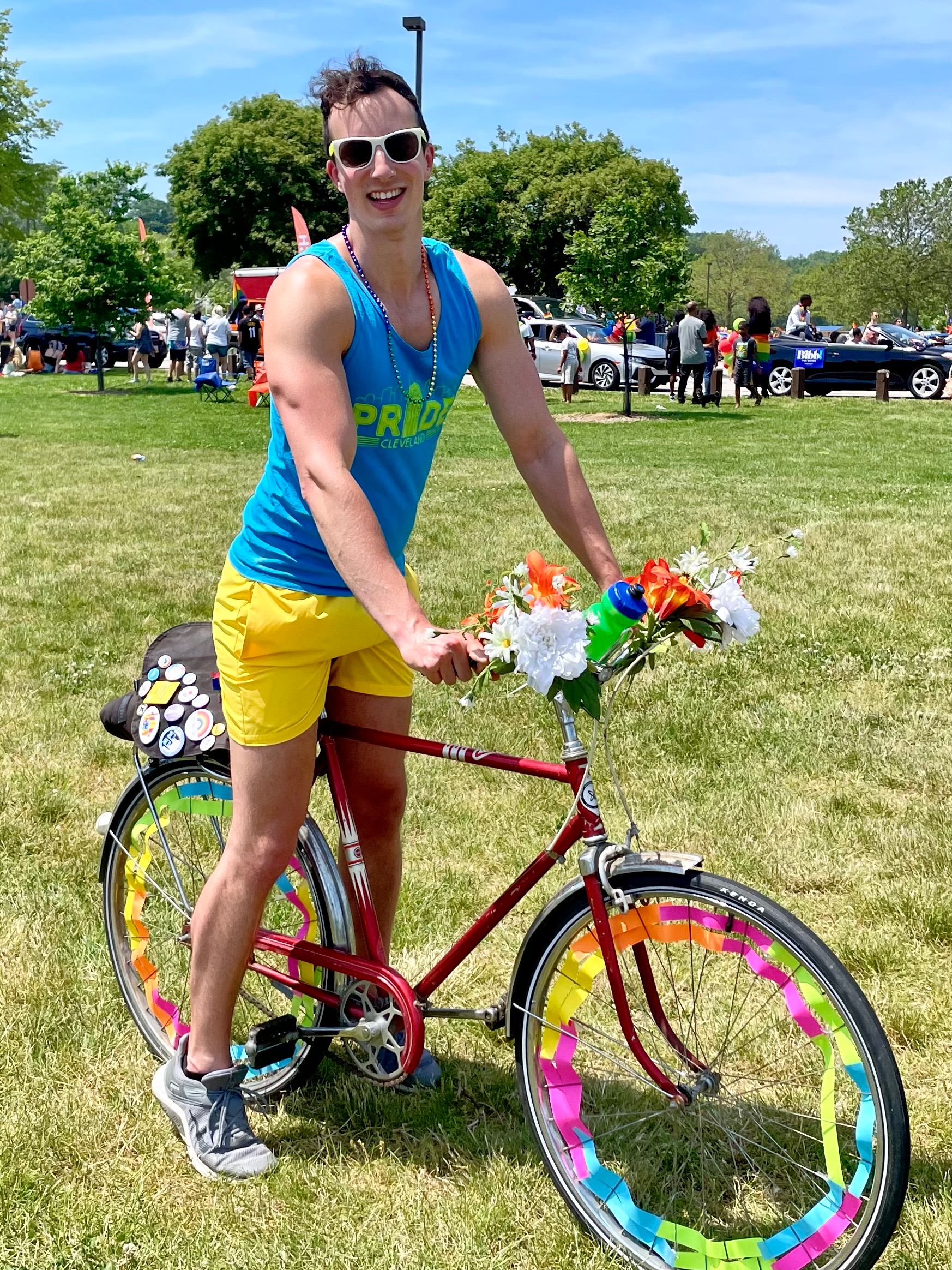
For the majority of my life, I felt unathletic, and by extension, unmasculine. From negative experiences beginning at the age of six, I learned I was bad at sports and hated my body for it. I loathed competition (except with myself).
😖 Negative experiences
- Being terrified as a child at swim lessons
- Whiffing at a softball/kickball/tennis ball in gym class
- Being a closeted gay boy in the middle school locker room
- Learning the "sins" of sloth and gluttony in Catholic school
- Coming in last place in a cross country meet
- Watching family members punish themselves to lose weight
- Avoiding the intimidating weight floor at the college rec center
Even later as an adult, after I came out as gay and gave up on meeting gender stereotypes, I kept searching for something my body was “good at.” Eventually I found strength training, where I felt efficacious at last. It triggered a years-long reimagination process; I identified myself as a vegan athlete and then a personal trainer. My beliefs shifted, and I realized I'd had many positive experiences with fitness in my life.
😊 Positive experiences
- Doing Pilates with my mom
- 10 years of sweating my ass off on the marching band field with my friends
- Trying out discus throwing and enjoying it despite being mediocre
- Learning from our cross country coach that running is mental sport
- Joining a Bokwa "dancercise" class and loving it
- Figuring out weight machines alone in a community center full of senior citizens
- Seeing my weightlifting numbers increase in the Strong workouts app
- Biking from Cleveland to Akron
- Giving up meat for environmental reasons and then discovering that rice & beans were great workout fuel
That cognitive dissonance in becoming stronger despite my internal narrative of weakness changed me. It awakened a fascination that pushed me to keep trying and keep learning!
My beliefs today:
Bodies can be healthy at any size.
Wellness is felt, not seen. It is unique and individualized, not standardized. And everyone in every body deserves access to the health care they want and need.
My ongoing learning and unlearning sources: Association for Size Diversity & Health; dismantling medical fatphobia by Marquisele Mercede; BMI's racist history explained by Sabrina Strings, Ph.D.
Wholesome eating means adding enjoyment, not subtracting calories
The most universal nutrition advice is: Eat fruits, vegetables, and grains (cereals & legumes) that make you feel your best. For most people, and not coincidentally, these include whole foods that are less processed, less packaged for maximum corporate profits. Beyond that, our food choices are a complex interaction of nutrient needs, culture, socialization, and economics — best navigated with personal intuition, not deprivation diets.
My ongoing learning and unlearning sources: World Health Organization; Canada Food Guide; The Plant Based Athlete by Matt Frazier and Robert Cheeke
Exercise is self-care, never self-punishment
The best exercise is the one you enjoy! You'll be more likely to continue, master, and identify with a joyful activity. Research shows exercise increases our happiness and self-efficacy, but punishing yourself out of guilt or fear blunts those effects. Personally, exercise is a key tool for managing my chronic depression.
My ongoing learning and unlearning sources: National Strength & Conditioning Association; Mental Health America; Stronger by Science
"Affirming fitness" is the practice of believing in your unique body as strong and worthy of your care.
More views that resonate with me
During the beginning of the COVID pandemic in 2020, I found that fitness rose to the top of my priorities. When every place was closed, I missed my gym the most. Taking a daily walk, working out in the bedroom with resistance bands, and cooking wholesome meals became some of my lifelines.
It also gave me time to evaluate my own fitness journey and wonder how it could have gone better, how it could be more affirming for me and others. In my research online, I found many of the sources above as well as the forward-thinking people below whom I respect and follow.
From Asher Freeman, founder of the Nonnormative Body Club in Philadelphia:
"My work as an anti-oppressive personal trainer is to remind people that our bodies belong to us, and we have every right to inhabit, nourish, and celebrate them as they are."
Asher says they began weightlifting as a gender-affirming method to make their body more masculine, something to which I relate. Like me, Asher found something more valuable in their workouts: feeling your movements and feeling at home in your body, if even for an hour at a time.
From Casey Johnston, writer of She's A Beast:
"As I got into lifting, it began to dissolve the thick connective tissue in my brain between 'working out' and 'being as attractive and tiny as possible.'
"I learned that working out doesn’t have to be complicated; that food is good for you, actually; that bodies are where you have to live, not just for being hot, so you should make it nice."
Casey is a writer of 14 years who “yells nonstop” about her exciting experiences with strength training, resting, and “eating like a big, beautiful horse,” while skewering the women's health industrial complex of dieting and excessive cardio.
From POP Gym in Brooklyn:
Toward athleticism without commodification or patriarchy—to strengthen ourselves and our communities.
That has to be the coolest, most powerful and succinct mission statement I've encountered in the fitness space. It directly influenced my conception and founding of Out Fitness Collective.
From the late, great bodybuilder Jim Morris:
"...Because of how I want to live in this world and because of how I want to treat other creatures, I have to be a vegan."
Living in overlapping spheres of marginalization and idolization, Jim was capable of seeing and defining his true self. He remained active until the age of 80.
From Coach Damali Fraiser, owner of Lift Off Strength & Welness in Ontario:
"I want to see fitness create freedom in the ways we share movement... I want to see fitness as a pure expression of our humanity where compassion leads and joy is close behind."
After undeserved experiences of anti-Black and anti-fat discrimination and gender-based violence, Coach Damali has forged opportunities to empower herself, her daughters, and other Black women. She uses kettlebell training to create a space where every person can come as they are and explore their strengths.
My personal definition of fitness has greatly expanded beyond physical ability into the more hollistic ideas of self-care and self-affirmation. I expect my beliefs to continue to evolve as they become more intersectional with health and liberation movements. I strive to be a source of support for others on their unique fitness journeys.
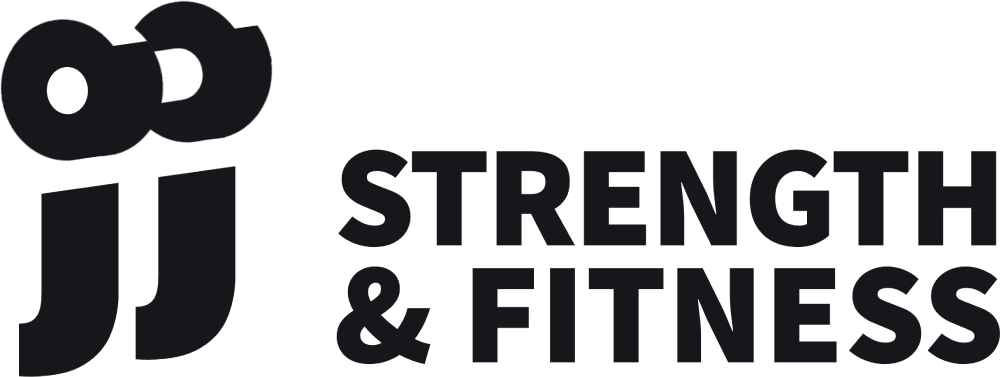

![Book recommendations [updated]](/content/images/size/w750/2024/07/Screenshot-2024-07-08-at-8.01.24-PM.jpg)
